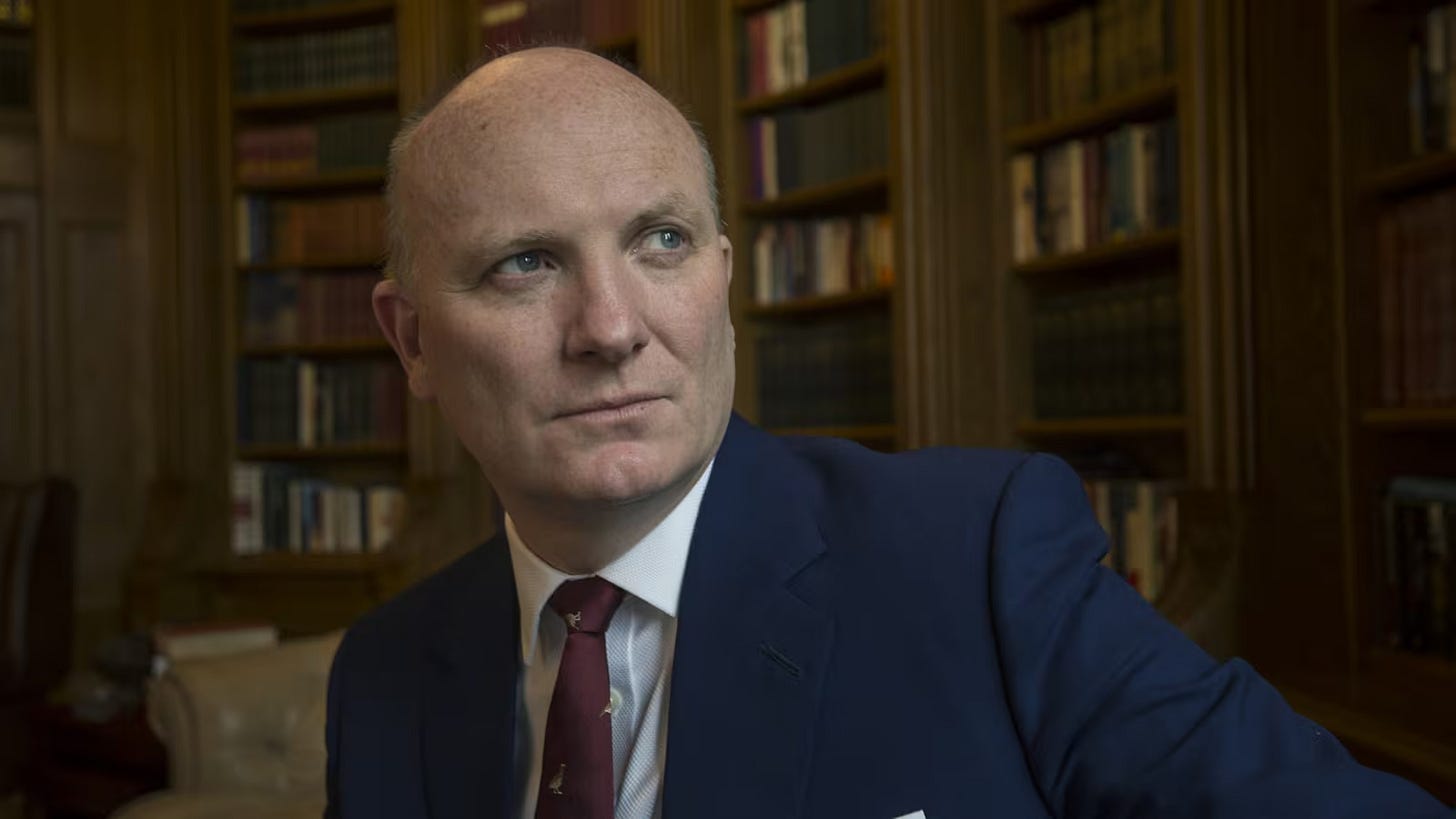Earning his fortune in telecommunications, Declan Ganley has spent three decades at the bleeding edge of his field. In the late 2000s, he founded and led the Irish branch of Europsceptic political party Libertas. Today, he works as chairman and CEO of Rivada Networks, providing telecom services to America’s military, police and emergency services in the event of disaster. In the wake of Hurricane Katrina, his work earned him the Louisiana Distinguished Service Medal. He is also busy building ‘the Outernet’ - “the world’s first completely self-contained global communications network.”
Why did we invite him on?
Konstantin encountered Declan for the first time at a private event in D.C. Unfamiliar with him and his work, he found himself floored by a speech Declan delivered on the subject of the Chinese Communist Party. Weaving together the narrative of his personal story, his rise to success, and his adversarial relationship with the superpower, it “took the roof off the place.” From then, it was only a matter of time before we had him sit down.
What did we learn?
”The outernet is not the internet. Today, every global communications network is a patchwork of different owners and protocols and it works very well. It’s also extremely vulnerable … You don’t even need to be a state actor to take out the internet. I know a non-state actor could do it for sixty million bucks. They wouldn’t need a computer, or a phone, or even internet access: just cash and plane tickets. I can’t say that will happen, but I will be very surprised if it doesn’t.”
Despite our near-universal dependence on the thing, very few of us actually understand the internet. We use it almost constantly, and while life without it wasn’t so long ago, one struggles to consider it no longer being there. So much of modern life hinges on its presence. That’s why it’s so important, and why it’s such a target.
But taking out the internet, is that not just cutting off your nose to spite your face? Sure, your enemy is going to be handicapped by it, but so will you, so what’s to be gained? Another level playing field?
As Declan points out, that’s true for most countries. But not all.
”There are reasons states wouldn’t do this, but if you are a state that has your own completely self-contained internet that doesn’t touch anybody else’s, or complete control of your own communications and information flow, if you have stock-piled materials like steel and rare Earth metals, if you have the power to watch kinetic warfare … then of course you’re going to do it.”
And there’s no quick fix. Our internet’s greatest vulnerability is also its most impressive trait: it’s so hopelessly complicated.
”The list of people who could repair the internet is very short. And you can bet whoever would want to do this knows who they are and where they live.”
So who meets that standard? Who would want to do this?
Keep reading with a 7-day free trial
Subscribe to TRIGGERnometry to keep reading this post and get 7 days of free access to the full post archives.



